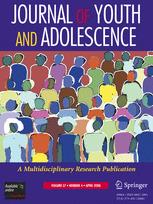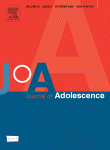The NASY was first conducted in its present form in 2002, in the inaugural year of the Adolescent Risk Communication Institute of the APPC. The NASY expanded on prior surveys involving tobacco use to include questions on gambling, media use, positive youth activities, suicide risk and mental health, and stigma of mental disorder.
Mental health
Many youth expect to die early, new APPC study finds
Many U.S. youth ages 14 to 22 expect to die before age 30, according to a new study published in the Journal of Adolescent Health. About one out of 15 young people (6.7 percent) expressed such “unrealistic fatalism,” the study concludes. “I am surprised that one in 15 young Americans report they will die so
Holiday-Suicide Link: Newspapers Turn the Corner
Newspapers are close to putting to rest the myth that the holidays increase the risk of suicide. A new study shows a dramatic drop in articles that – despite having no basis in fact – attribute the arrival of the holiday season with an uptick in suicides. An analysis of newspaper reporting released today by
Card Playing Down Among College-Age Youth; Internet Gambling Also Declines
Card playing for money among college-age youth (18 to 22) has declined, according to the latest National Annenberg Survey of Youth. Weekly use of the Internet for gambling also declined among this age group. Both declines are statistically significant. “This year’s strong drop in weekly card playing among college-age youth indicates that the fad has
Holiday-Suicide Link: Newspapers Continue to Perpetuate the Myth
Despite no basis in fact, newspapers continue to report on the increased risk of suicide around the Thanksgiving, Christmas and New Year holidays. An analysis of newspaper reporting over the past seven years released today by the Annenberg Public Policy Center shows that this story represents about half of all holiday-relevant suicide reporting. Stories linking
More Than 1 Million Young People Use Internet Gambling Sites Each Month
Rates of Online Gambling Among Males 18-22 Doubled Last Year Two days after Congress cracked down on online gambling, new data released today show that more than one million young people currently are using Internet gambling sites on a monthly basis. Among males 18 to 22, Internet gambling doubled in the past year. The new
Local News Coverage of Suicides Triggers More Copycats than National News Stories
News coverage of suicides by local television and newspapers is more likely to trigger suicide attempts in others than national news stories on the subject, according to a new study that tracked reporting and health statistics in six U.S. cities. The study, published in the current issue of the Journal of Communication, is the most


